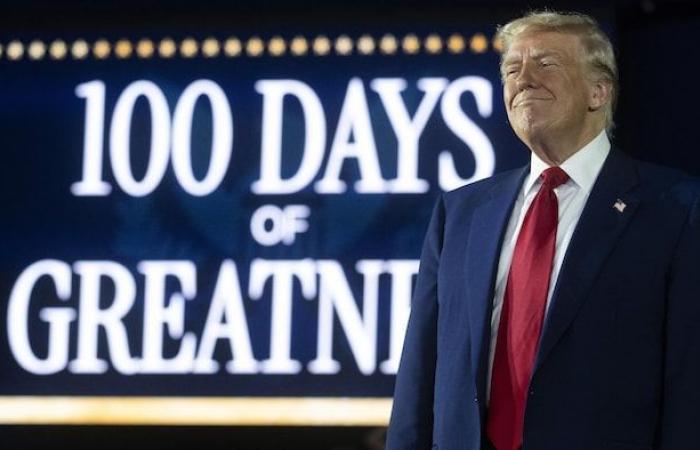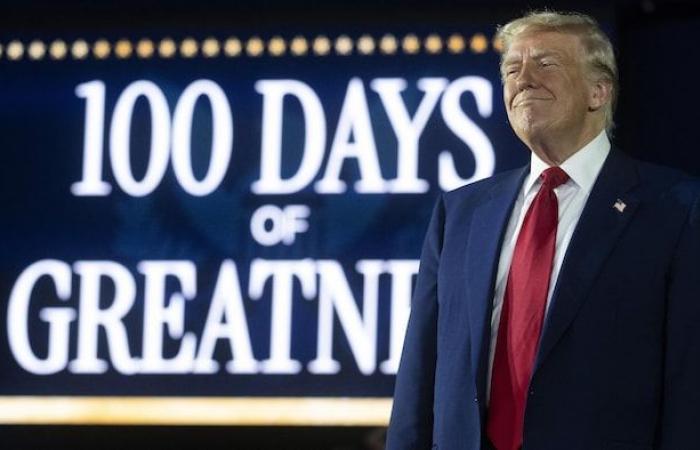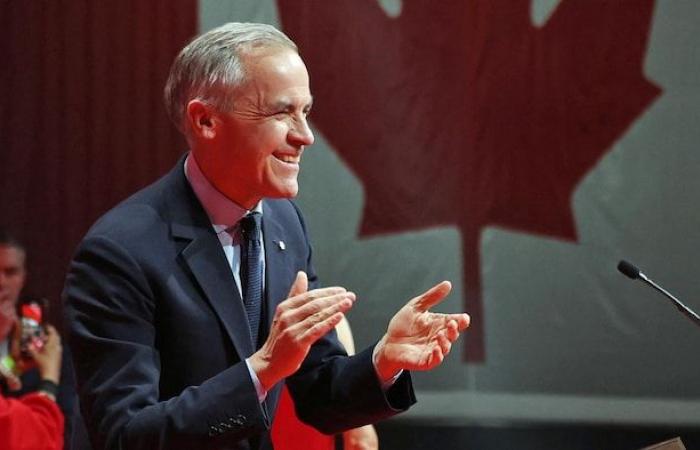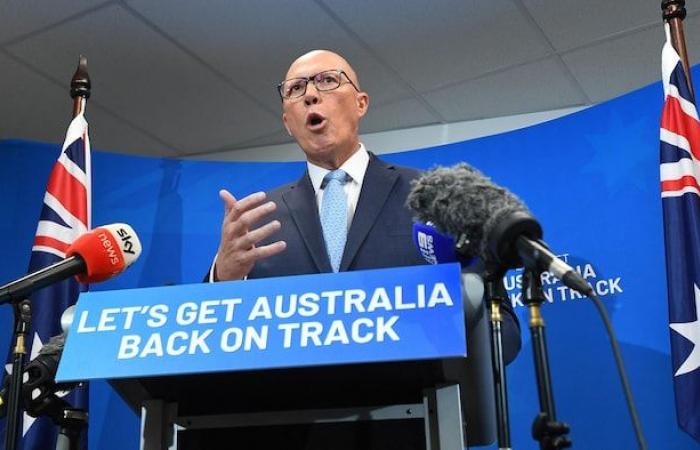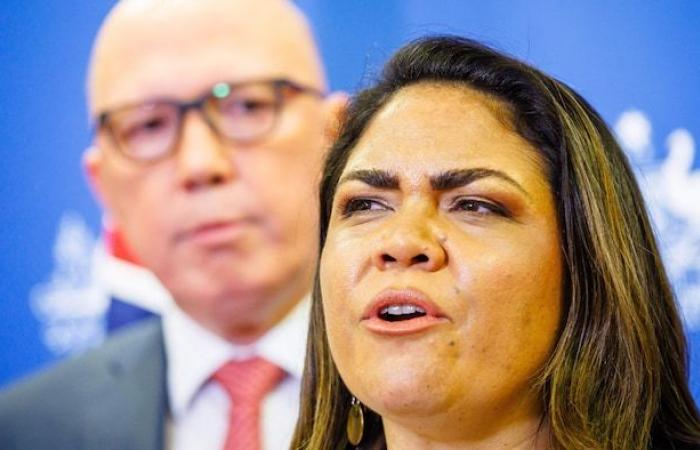Australia goes to the polls this Saturday, May 3 to renew the entire House of Representatives and half of the Senate. Labor Prime Minister Anthony Albanese, elected in 2022, seeks to win a second term against the conservative opposition, which there is called the “liberal-national coalition”.
Australia today seems to witness a phenomenon strangely similar to what we have seen in Canada in the last three months: a effet trump
– in the sense of rejecting effect – inspired by anxiety, even fear, or by a concern for State quowhich could save the outgoing government.
Inversion of polls after January
So in Australia as in Canada? With nuances, but also similarities.
After taking the function of Donald Trump, and especially after the triggering of his all -round trade war, the polls, as in Canada, were reversed in favor of Labor. And this, despite the fact that we are at the other end of the world, not stuck in the United States with 25 % prices on steel and the automobile.
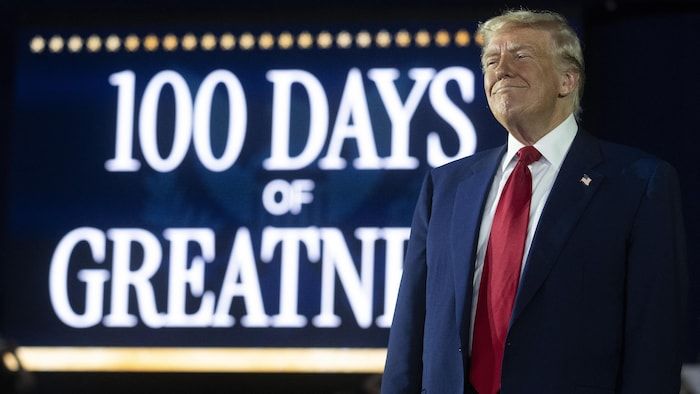
Open in full screen
US President Donald Trump delivered a speech on his 100th term of mandate in Warren, Michigan, April 29, 2025.
Photo : Getty Images / AFP / JIM WATSON
There, the Liberals-Nationals are the conservatives who bite their thumbs to have flirted for a while with Trumpism. And opposite, Labor who, such as the Liberals of Canada, rub their hands for having had such a scarecrow that has fallen from the sky.
L’effet trump
In Australia caused a marked drop in conservative vote. The liberal-national coalition was given a winner in January, ten points ahead of the ruling party. But this effect
gave an unexpected boost to the forces call the liberals of the center left, the Australian Labor Party being more or less the equivalent of the Liberal Party of Canada, without being a party as hegemonic as the historically the PLC to Ottawa.
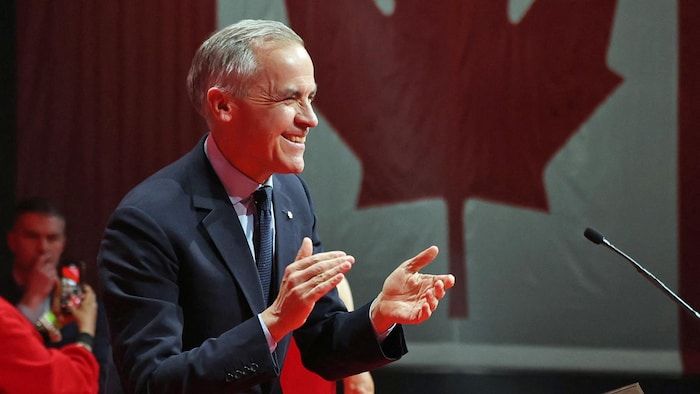
Open in full screen
Prime Minister of Canada, Mark Carney, celebrates his victory in Ottawa on April 29, 2025.
Photo : Getty Images / DAVE CHAN / AFP
The December and January surveys gave, grosso way40 % of voting intentions at the right coalition, compared to 30 % to Labor, weighed down by a difficult economic situation. Three months later, April, the trend was reversed with, on average, 35 % to Labor and 32 % at the right coalition.
The latest pre -electoral survey, published on April 30 by the Yougov firm, accentuates the Labor advance and goes from projections to seats. It provides 84 seats to Labor (out of the 150 in the House of Representatives), with the right reduced to 47 deputies, which would be its worst result since 1946 as a percentage of seats in the Federal Parliament.
Australian policy 101
Here is a little reminder of the Australian political system.
In Canberra, the capital, the lower room is renewed every three years: a curious deadline, a particularity that Australia shares with neighboring New Zealand. There is a third party, the Greens, who will seek some deputies, but who remains marginal.
In Australia, a particular electoral system allows a large number of independents to be elected. In the outgoing room, there were about fifteen out of 150 seats. This is the so -called preferential system, also called Voting in the second instant round
.
Each voter is held (under penalty of seeing his Bulletin canceled) to register a preferential order for all candidates in his constituency. This means that some candidates who are not the first choice of anyone, but the second choice of many people can sneak and manage to be elected, when they would have lost the uninominal system in a turn.
In the absence of an absolute majority for a party, and based on the current room, these independents would rather tend to lean on the left.
Nuanced comparison with the Canadian case
In comparison with Canada, nuances are essential: the conservative opposition chief Peter Dutton is not precisely a Donald Trump. Even compared to Pierre Poilievre, it is distinguished by a cozy side. His style is not that of an aggressive tribune. It is a young bald fifties, with glasses, of good presence, which has a rather soft tone.
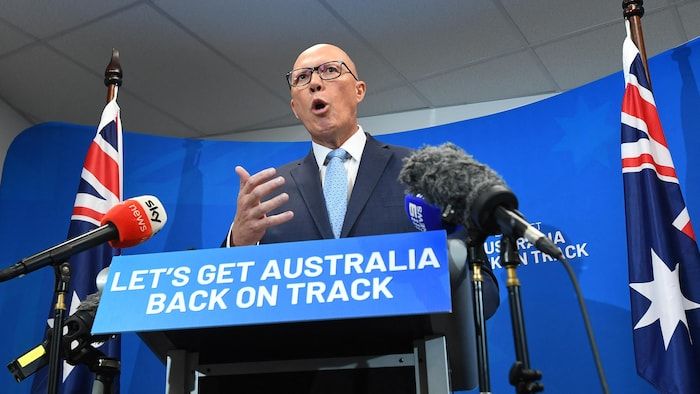
Open in full screen
-Peter Dutton at a press conference as part of the campaign for the 2025 federal elections in Brisbane, Australia.
Photo : Reuters / JONO SEARLE
A few days before the electoral deadline of May 3, in an interview in head, a television journalist asked him why he did not take out heavy artillery, for example by directly attacking Anthony Albanese.
He replied that it was not his style, and that it is rather the questions of substance, bread and butter, inflation, Labor mismanagement
, excessive zeal of green policies
who guided his campaign.
His kinship with Western populists is more due to his themes than his style. Like Pierre Hairyvre or Donald Trump, Peter Dutton has against what he considers the media bias, intellectual elites, according to him too marked on the left and having a grip on cultural institutions.
He denounces inflation, which in Australia has particularly struck the real estate market in recent years. He wants to reduce environmental standards for reasons of economy. Themes that can be connected to Trump or Hairy.
Not precisely the ligne Trump
But during the last debate of the chiefs (two), against Anthony Albanese, when he was shown a photo of Elon Musk by asking him what words spontaneously came to mind, Dutton released … left
: Evil genius
! Not precisely the Trump line …
On the other hand, some of his candidates have gone more in this register and, until recently, claimed a kind of Trumpist Revolution to the Australian.
A conservative candidate of Aboriginal origin, Jacinta Price, let the slogan escape in a speech Make Australia Great Again
. Seer The Trump effect
Joining Australia, but in a bad way, the party leadership asked her not to add too much. She then declared that she had lipped a slip.
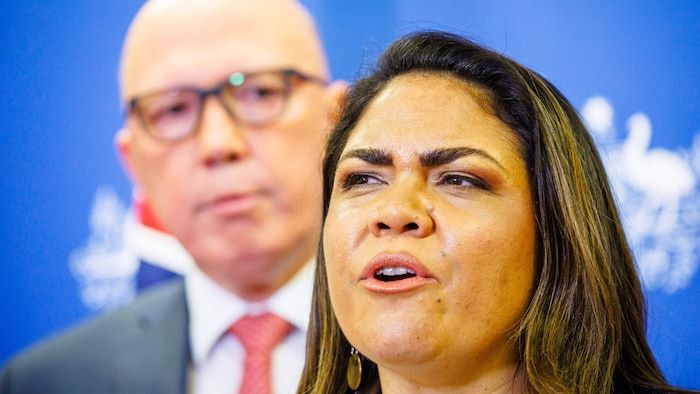
Open in full screen
Jacinta Nampijinpa Price and Peter Dutton, head of the opposition, during a press conference. (Archives photo)
Photo : Getty Images / AFP / PATRICK HAMILTON
Peter Dutton Retropedale
But if the conservatives are ashamed of their affiliation – supposed or past – with the distant movement MAGAwhy this tendency inversion in polls, and the rejecting effect, despite everything, of Donald Trump?
Because the outgoing government, in its advertising, agitated the argument of stability against the unknown in a world that has become dangerous
which seemed to work. Because elements of the right program resemble, in large lines, that of American populists.
For example, the Conservatives in 2024 had registered in their platform the radical reduction in public spending and the number of civil servants, the reduction of environmental restrictions, the partial privatization of the health services.
All of this gave grain to grind to Labor and caused a clumsy retropedage of Peter Dutton on certain points of his program.
For example, he wanted to prohibit federal officials all teleworking. But in front of the outcry, the conservative chief fell. Media analysts stressed that Anthony Albanese, despite a mixed economic assessment,, however, made an effective campaign.
Anxiety in front of the unknown
Have international issues, especially American prices, played in the campaign? Yes, but to a lesser degree that we saw in Canada.
According to analysts, there is, in Australia as almost everywhere, an anxiety of uncertainty, of the unknown, which has the effect of strengthen
. But Albanese did not want, nor felt the need, to go and play, like a Mark Carney, the thunderous anti-top, the Captain Australia who will save the country
Against the American populist villain.
But he repeated that The last thing we need is an unstable government
.
It seems that the argument has carried. Australian television showed a voter on Monday who had just voted in advance and who declared: Trump affects everyone. What is happening outside the country is more important than what is happening inside. I just want it State quo.

